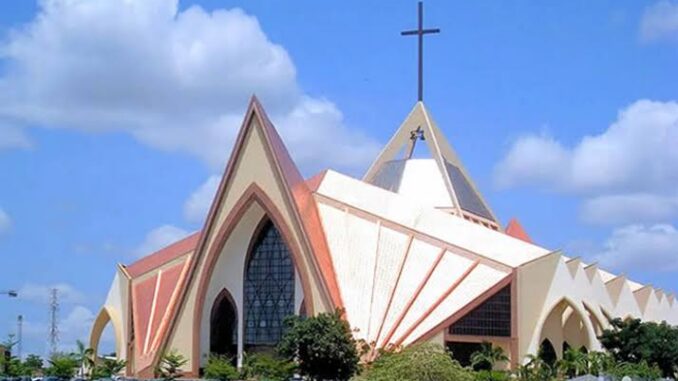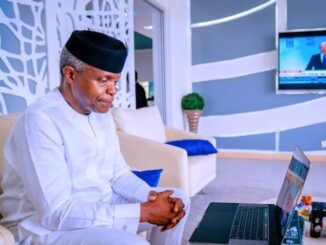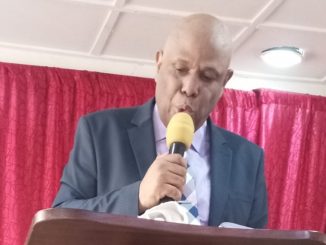
By Ebenezer Obadare
It is not unusual that religion is getting all the attention as next year’s presidential election in Nigeria draws closer. For better or for worse, Nigerians take religion very seriously, and the often unpredictable interaction of religion and ethnicity is a key element of political contestation in the country. Yet, if the role of religion was totally predictable, that Nigerian Christians feel that they have been backed into a situation where they must seriously consider voting for a presidential candidate solely on grounds of faith, seems something of a novelty.
The backdrop to this is the decision of Bola Tinubu, the All Progressives Congress (APC) presidential standard bearer to choose a northern Muslim, former Governor of Borno State Kashim Shettima, as his running mate. For Tinubu, a Yoruba Muslim, the imperatives of ethnoregional balancing in Nigeria should have dictated the selection of a Christian (or at least non-Muslim) northerner. Yet, such is the weight that the predominantly Muslim northern electorate is widely believed to accord religious identity that, so the thinking goes, the selection of a Christian would have amounted to political suicide on the part of the APC.
Whether or not the perception is well-founded, there is little doubt that Tinubu’s selection of Shettima, especially coming after many Christian leaders had openly questioned the political wisdom of such a move, has had the effect of making Christians feel belittled and ignored. The upshot is arguably the most sustained spell of Christian religious mobilization the country has witnessed since the inauguration of the Fourth Republic in 1999.
While the ensuing clamor has been spearheaded by former Secretary to the Government of the Federation (SGF) Babachir Lawal and former Speaker of the House of Representatives Yakubu Dogara (both of whom, admittedly, may have their own personal and political reasons for jumping on the religious bandwagon), the passion stirred by what is widely known as the Muslim-Muslim ticket, especially across the largely Christian South, is palpable enough. At different times, various constituencies within the Christian Association of Nigeria (CAN) and the Pentecostal Fellowship of Nigeria (PFN) have denounced the Muslim-Muslim ticket, describing the arrangement as “insensitive” to the plight of Christians who have borne the brunt of the Islamist insurgency following its gradual spread to other parts of the country from its initial stronghold in the northeast.
ALSO READ: APC: Northern Christians formally reject Muslim-Muslim ticket
Peter Obi, the Labour Party presidential candidate, appears to be the prime beneficiary of this surge in Christian disaffection. A Catholic from Anambra State in the Southeast, Obi has sought to meld Christian disappointment in the religious identity of the APC’s standard bearers with youth political disenchantment. The thunderous applause that greeted his introduction during a recent visit to the Dunamis International Gospel Centre in Abuja shows the potential of such a strategy. Last weekend, Obi continued his courtship of the Christian vote with a well-publicized visit to David Oyedepo, founder of the Living Faith Church Worldwide (aka Winners Chapel), at the church’s Ota, Ogun State, headquarters.
But can Obi really consolidate the “Obi-dient” and the religiously disaffected into a single voting bloc?
There is a greater likelihood of this happening in the Igbo southeast where Obi may legitimately expect to blur the line between ethnicity and religion. The Igbo are overwhelmingly Catholic, accounting for more than 70 percent of Nigeria’s Catholic population. In recent weeks, more Igbo appear to have warmed up to Obi’s candidacy just as his popularity among young Nigerians has soared. Whether that will be enough to persuade Igbo power brokers who are currently entrenched in the APC and People’s Democratic Party (PDP) to switch sides remains to be seen.
Obi also runs the risk of turning a multiethnic coalition into a monoethnic one, especially if his support among the Igbo continues to rise. While he would be foolish not to accept such support, especially from those who must have given up on the possibility of an Igbo presidency after Atiku Abubakar had muscled out Obi (and shortly after Rivers State Governor Nyesom Wike) from the PDP, being seen as an ethnic candidate (something that, to be fair, he has done nothing to deserve) will create political complications that may not bode well for his campaign.
All of this still leaves us with the question of how Christians will vote. Although many church leaders have registered their disappointment with the Muslim-Muslim ticket and urged their congregations to register to vote as a way to voice Christian anger, significantly, such leaders, perhaps hedging their bets, have stopped short of asking their members to vote for Obi because he is a Christian. This is not to underestimate the attraction that Obi holds for many Christians, nor to dismiss the power of the resentment that many Christians rightly hold about a Muslim-Muslim ticket being added to the injury of perceived persecution; it is to wonder whether, in the final analysis, the resentment will last long enough for them to set aside other competing considerations and plump for a candidate purely on account of his religious identity. Even if done in retaliation, it will make the southern electorate the unlikely facsimile of its northern counterpart, especially insofar as the latter is believed to be primarily responsive to religious stimuli.
It does seem counterintuitive, but perhaps Obi’s path to an improbable victory may lie in emphasizing his apparent credentials as the moral antithesis of Tinubu and Abubakar (the part of his platform that has galvanized the ‘Obi-dient’), rather than his Christian identity. For Obi, part of the danger of being seen as caring too much about the Christian vote (potentially a plus in the Middle Belt) is the possibility of uniting Muslims against a candidacy that, even at the best of times, has always seemed regionally circumscribed.
Finally, there is the question of how Yoruba Christians will vote. Will they be guided by religious solidarity? Or will they cover their noses and vote for a candidate they all agree is flawed (Tinubu) but, as things stand, the only one with a real chance of ensuring that power shifts back to the south? While Tinubu is a Muslim, he is a Yoruba Muslim married to a Christian Senator, ’Remi Tinubu, who also happens to be a pastor of the Redeemed Christian Church of God (RCCG), Nigeria’s preeminent Pentecostal denomination.
Can Tinubu cut a path to the Pentecostal vote—if indeed there is such a thing—through the instrumentality of his wife? Did he perhaps make his choice of running mate secure in the knowledge that he always has a back door route to the Christian community via his wife? Does she really have the clout to move mountains within RCCG, never mind the larger Pentecostal community? Can Tinubu prevail on Vice President Yemi Osinbajo, another RCCG pastor whom he defeated in the party primary, to bat for him among his Christian brethren? When push comes to shove, will the Christian Yoruba voter see Tinubu as a Muslim, a “structural Christian,” or the best guarantee of a shift in the regional location of political power after eight consecutive years of northern rule and hence an opportunity too good to pass up?
The Nigerian Christian predicament is just a fragment of the dilemma confronting the broader Nigerian electorate.
• This article authored by Professor Ebenezer Obadare, a Douglas Dillon Senior Fellow for Africa Studies at the Council on Foreign Relations (CFR), United States, was originally published by CFR, as part of the Diamonstein-Spielvogel Project on the Future of Democracy.




